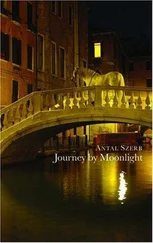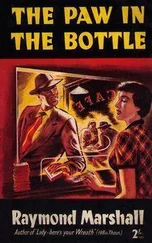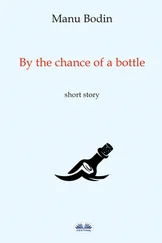Antal Szerb - Love in a Bottle
Здесь есть возможность читать онлайн «Antal Szerb - Love in a Bottle» весь текст электронной книги совершенно бесплатно (целиком полную версию без сокращений). В некоторых случаях можно слушать аудио, скачать через торрент в формате fb2 и присутствует краткое содержание. Год выпуска: 2013, Издательство: Pushkin Press, Жанр: Классическая проза, на английском языке. Описание произведения, (предисловие) а так же отзывы посетителей доступны на портале библиотеки ЛибКат.
- Название:Love in a Bottle
- Автор:
- Издательство:Pushkin Press
- Жанр:
- Год:2013
- ISBN:нет данных
- Рейтинг книги:5 / 5. Голосов: 1
-
Избранное:Добавить в избранное
- Отзывы:
-
Ваша оценка:
- 100
- 1
- 2
- 3
- 4
- 5
Love in a Bottle: краткое содержание, описание и аннотация
Предлагаем к чтению аннотацию, описание, краткое содержание или предисловие (зависит от того, что написал сам автор книги «Love in a Bottle»). Если вы не нашли необходимую информацию о книге — напишите в комментариях, мы постараемся отыскать её.
and
.
Love in a Bottle — читать онлайн бесплатно полную книгу (весь текст) целиком
Ниже представлен текст книги, разбитый по страницам. Система сохранения места последней прочитанной страницы, позволяет с удобством читать онлайн бесплатно книгу «Love in a Bottle», без необходимости каждый раз заново искать на чём Вы остановились. Поставьте закладку, и сможете в любой момент перейти на страницу, на которой закончили чтение.
Интервал:
Закладка:
“Oh, we were just beginning to make friends,” Bátky replied modestly. “I stroked her the whole night. I thought you would have done the same. I kept thinking that it was your hand touching her.”
“How very kind,” she said, and took off her hat.
Now for the first time Bátky noticed how handsome she was. (“I’ve always adored tobacconists’ wives. Their hair has something of the rich gold of the finest Virginia.”)
They made tea, and while she was pouring it Bátky took the opportunity to record on a slip of paper: “Love affairs usually start in either September or January.”
After tea he sat at her feet and laid his head on her lap. He imagined that they were now at home, in her home, in East Ealing… family photos hanging on the wall… the grandfather with huge whiskery sideburns… Christmas carols playing on the gramophone… everything serene and unchanging, the British Empire on its mighty foundations, and Madelon playing with a kitten beside the hearth.
Her lips had the taste of home-made strawberry jam. Her movements, as she undressed, were calm and placid, as if tomorrow were another day. Her whole being radiated such complete self-assurance he quite forgot to wonder at his unexpected conquest. Apparently it was what everyone did in this country after tea. Even Jenny.
“I’ll come again,” she said, some time towards evening.
“I’d be delighted,” he replied with conviction. “Won’t you tell me your name?”
“Oh, I thought you’d recognised me. You must have seen my picture in the papers — it’s there often enough. I am Lady Rothesay.”
And off she went.
This parting note unsettled Bátky. He placed a high value on truthfulness in other people. He had many times broken off with a woman because she said she’d been at the dentist when she had in fact been with another man. “Why was she so ashamed to be the wife of a young but successful tobacconist? These English are incurable snobs. If I had a little house in East Ealing, and a whiskery grandfather hanging on the wall, I would never dream of denying it.”
Her falsehood depressed him so much he couldn’t bring himself to fall in love with her. Once more his loneliness pressed down on him like a slowly lowered ceiling. The same gloom as always darkened the London streets. A fine drizzle was falling. On Camden Hill elderly gentlemen strolled towards their eternal rest. In Kensington alone there were two million old ladies. Life was quite meaningless… Somewhere, deep inside a Scottish castle, or in some dark avenue of ancient trees, the deranged wife of an earl was putting an end to it all…
One day she appeared on his doorstep again.
Once again, they spent a very pleasant afternoon. Bátky was in an intimate and sentimental frame of mind, talking about Budapest, where the cafés spilled a warm, cosy light onto the pavement, the waiters knew exactly which paper you liked to read, and the mysterious lower orders cleared the lovely white snow overnight.
“So what is your name?” he asked her, thinking that this time she would be sincere.
“But I’ve already told you. I am Lady Rothesay.”
Bátky became cool and detached. He could see he would never get close to this woman, and what is love without a meeting of souls?
“I’m going away tomorrow, to France. My father is a tower guard at Notre Dame.”
“And when are you coming back?” she enquired.
“I’m not coming back,” he replied grimly.
“As you wish,” she shrugged, and made her way quickly down the stairs.
A few days later the Sunday Pictorial found an occasion to carry yet another picture of Lady Rothesay. It was her all right.
“Women are incomprehensible,” he wrote on a slip of paper, and carefully filed it away.
1934
MUSINGS IN THE LIBRARY
LOOKING BACK on the blissful days of my youth, as they begin to slip away from me, I can now see that the best of them were those spent in the Bibliothèque nationale in Paris. I won’t deny that the hours I whiled away on night watch at the Scouts camp were also very pleasant, and my first amorous embrace, up in the mountains of Austria, though pure puppy love, comes pretty close — love and nature have seldom let me down. But the very best moments were undoubtedly those spent in the Bibliothèque nationale, especially the winter evenings.
Now, the beauty of penny-pinching is perhaps that it is so typically French. No illumination of any kind was permitted to penetrate the ever-receding mystery of the huge space under the arched ceiling. That would have been wanton extravagance. Instead, tall green lampshades, placed at strictly rational distances apart, burnt directly over the tables. These were of course switched on only after total blindness had set in. Immediately the silence intensified, humming with feverish excitement, since closing time was now imminent and everyone’s life suddenly depended on getting through the next fifty pages. The only sound to be heard was the rhythmic, monotone rustling of pages being turned and the occasional voice raised in protest by some superannuated lunatic at the counter where the all-powerful ushers were enthroned.
At five minutes before a quarter to six, a personage specially assigned to the task would proclaim in a voice of thunder: “Mesdames et Messieurs, on va bientôt fermer ”—the closing ‘ er ’ being wonderfully drawn-out, wavering off to vanish in the remoteness of those never-to-be visited rooms where the library kept its millions of books. Then, at five forty-five precisely, the same functionary would call out, with all the succinctness we have come to expect from ancient prophets of doom: “ On ferme !” And everyone trooped out.
My friend Swen Reimer filed out with me. As we made our way across the vast courtyard in the gathering gloom, I spotted the girl I had been admiring on and off throughout the day whenever I needed a break from my reading. Now, as she crossed the space in front of us, there was no difficulty deducing her national origins. In her crisp trench coat, blue student’s cap and powerful stride there were distinct adumbrations of the Prussian military.
“You know, Reimer,” I observed. “If I were German, I’d go straight up to her and declare: ‘Young lady, you are German, I am German. Shall we leave together?’”
Then something dreadful happened. Reimer replied:
“Yes, I might just do that, but I’d have to be on my own.” Then, “Do excuse me,” he continued, in his usual, slightly offended-sounding tone, and promptly abandoned me. He was with the girl in an instant, seemed to strike a chord with her almost at once, and the two of them marched off into some erotic hinterland, leaving me standing there as if turned to stone.
It was an unspeakable disappointment. I had always imagined that Reimer would be just as timid as all the other souls who haunt the libraries of the world. I had no sense of his being in any way superior. I had felt sure of him, I had complacently despised him, and now… That’s what happens when you put your trust in people.
I wandered through the Place du Palais Royal, where I was particularly struck by a display in the window of the Louvre department store. It presented a stork bringing dazzlingly lit presents to dazzlingly lit children sitting in a little house, in which the gifts appeared in rotation and then miraculously disappeared. It reminded me that Christmas — that ritual humiliation of the selfish and the lonely — was creeping up on us. I carried on down the Rue des Saints-Pères, where I lived, thinking how pleasant it would be if there were a letter waiting for me in my room.
“Even better would be one with a cheque inside,” I mused, more pragmatically. “But should some female acquaintance have written, that would at least be something. I wouldn’t even mind going back to the customs office, so long as there really were something for me in the post, something completely unexpected.”
Читать дальшеИнтервал:
Закладка:
Похожие книги на «Love in a Bottle»
Представляем Вашему вниманию похожие книги на «Love in a Bottle» списком для выбора. Мы отобрали схожую по названию и смыслу литературу в надежде предоставить читателям больше вариантов отыскать новые, интересные, ещё непрочитанные произведения.
Обсуждение, отзывы о книге «Love in a Bottle» и просто собственные мнения читателей. Оставьте ваши комментарии, напишите, что Вы думаете о произведении, его смысле или главных героях. Укажите что конкретно понравилось, а что нет, и почему Вы так считаете.











